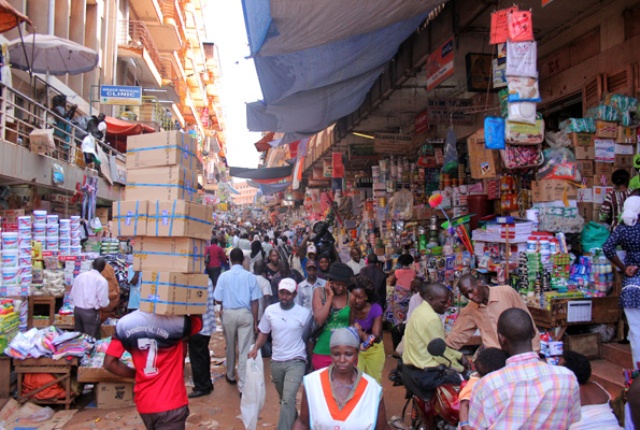By UDN
The informal sector has in many ways superseded the formal sector and is now the face of modernity rather than its antithesis. By informal economy we mean an amalgamation of unregistered and unlicensed self/family-owned micro, small and medium enterprises not protected by the State. They don’t enjoy any social benefits, and often have no titled or registered assets. This means they are inherently vulnerable, highly mobile, and insecure. As a consequence, these unregulated entities don’t pay taxes, their employees are excluded any social safety nets and they lack the protection accorded by formal labor contracts. It is easy to underestimate the contribution this sector makes to the Ugandan economy.
Uganda’s large informal sector is a cache of untapped revenue potential
Despite government’s recognition of the informal sector, there is need for clarity on the strategic direction for addressing informality. According to the National Strategy for Private Sector Development, FY 2017/18, the informal sector contributed a significant share to GDP (43.9%) in FY 2014/15 which is sizeable posing a big challenge in competition to formal enterprises. The private sector economy is largely characterized by Micro Small and Medium Enterprises (MSMEs), with low productivity and high informality. Up to 80 % of the economy is comprised of informal businesses, who transact in cash making it difficult to track and asses them for tax leaving much of the tax burden to the formal sector.
Many informal small enterprises are family owned and often do not have a fixed address and a range of factors have further stifled the MSME growth, including the high level of informality, over protection of foreign investors, long procedures for starting a business, low innovation and productivity, government’s domestic borrowing and credit access challenges.
Informal sector, channel for depriving government of tax collection
The World Bank (2017) noted that the majority of informal firms are evading taxation and therefore depriving formal firms of their hard-earned profits. On the other hand the informal economy is conducive channel for providing a good blend for illicit activities, including illicit financial flows which deprive government of tax collection. MSMEs typically have a high mortality rate with 90% operating for less than 20 years.
Many informal small enterprises (manufacturers, wholesalers, retailers, agricultural produce dealers) are family owned and often do not have a fixed address. The construction sector for example is one of the fast growing sectors but the service is provided informally implying loss of Government revenue. The transport sector also remains unregulated with no clear records of ownership. This means that a lot of taxable transactions are not traced. This is where the real economy thrives. By their nature, it’s difficult for tax authorities to track them hence lower revenues realized than the potential. Stringent measures by URA further frustrate small businesses and the difficult registration process marked by burdensome compliance procedures, complex tax regulations, and corruption also causes many to prefer informality in Uganda.
Recommendation
Government should;
Devise a strategy of tracking all economic activities contributing to growth and drawing them into the tax bracket by implementing an effective process of business registration. A conducive atmosphere for all businesses to thrive must be availed through making access to credit cheaper and supportive registration measures to boost investment in local enterprises. These approaches will enable the mobilization of revenue into the consolidated fund for service delivery.
Adopt an effective measure to regulate economic activities and no enterprise should be permitted to operate without a Taxpayer Identification Number (TIN). URA should devise a mechanism of providing tax clearance certificates to business owners which should be presented before renewing a license to encourage compliance.
Government needs to set up lawful associations within the transport business to coordinate and regulate the industry as well as collect taxes.
Widening financial reach has great input on economic growth and this calls for a deliberate policy transition of the role of sub-national government, from merely being a regulator of businesses to a facilitator of private sector growth and job creation. Therefore, investing in coordinated transport and economic infrastructure together with land use management, empowering domestic firms to improve productivity, and capacitating institutions and coordination structures should be implemented to stimulate growth.
UDN (Uganda Debt Network) is a civil society organisation that tracks Uganda’s debt transactions.








[…] READ MORE FROM ORIGINAL SOURCE […]